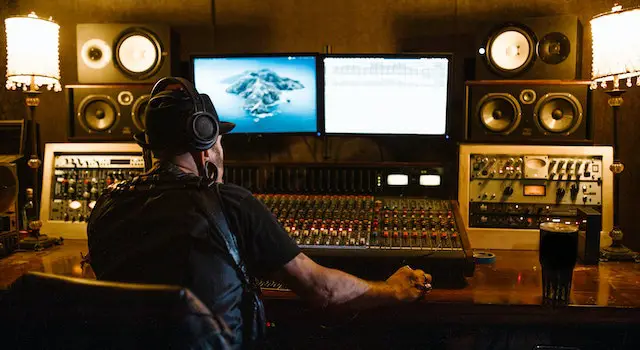How Much Money Do Music Producers Make?
For their efforts, producers will receive a flat fee or an hourly rate, two to three percent of the album’s sales, and advances (usually reserved for top tier producers). Everything is up to negotiation. Naturally, if you’re profiting off the album’s sales, the success of a release will affect your revenues per song.
If you are interested in becoming a music producer, you should know a few things. First, although the average annual salary for music producers is only $51,080, your pay can grow significantly with experience. Most music producers make their money through royalties. This industry is expected to grow by six percent by 2026.
The average Salary of a Music Producer is $51,080 Per Year
Music producers are responsible for creating new and exciting music. They work in recording studios, oversee mixing tables outside the sound booth and give directions to artists while they record. This career’s salary range depends on various factors, including the individual’s location and years of experience.
Music producers often earn more than others in the same field, and their pay can depend on their reputation. The music industry is competitive, and many people have to start at the bottom. To get experience, many people work in studios, internships, or on demos for low wages. While music schools teach technical aspects of production, working in a recording studio is the best way to gain a broader knowledge of the industry and its workings.
The average salary of a Music Producer is $51,080 per Year, with some locations paying more than others. The position requires extensive experience, which could give the more experienced producer an advantage when negotiating salary. However, people with less experience may also need to consider their special skills and education to find a competitive salary.
As a music producer, your goal is to make an album or song sound good. This involves directing musicians to perform at their peak and getting the studio to sound good. Producers create quality beats, styles, and harmonies using their knowledge of music and technology. They also oversee the recording process for artists and manage singles, albums, and the overall style of music.
Whether or not music producers receive royalties depends on the type of project and the genre of music. Producers typically earn a flat fee for their work, but they also receive some royalties. In many cases, producers share 50 percent of the publishing royalties with the composer.
Royalties are the Main Source of Income for Music Producers
Music producers make money through royalties, a percentage of each track’s sale price. The royalties are collected by the record label or digital service provider (DSP). The amount of royalty depends on the type of music, but in general, the music producer will receive about 80 percent of the value of the audio stream. In addition to the sales price, the producer will also receive a mechanical royalty, which is a percentage of the embedded musical work.
Royalties are generated in a variety of different ways. For example, music producers earn royalties from performances in public, such as radio broadcasts, restaurants, and bars, as well as through streaming services such as Spotify. Another way to generate royalties is by licensing music. A licensing agreement between the music rights holder and a third party, such as a record company generates this revenue stream. This process involves multiple stakeholders, each of whom receives a percentage of royalties from the performance.
While the royalty income of a music producer depends on the kind of song produced, it can range anywhere from $250 to $10,000 per song. Producers typically receive a higher royalty when a major label or artist releases their music. They also receive a royalty if their music receives regular radio airplay. Some of the most well-known music producers in the world, such as George Martin, had net worths of more than $100 million at the time of his death.
The primary source of income for music producers is royalty payments. These royalties can be divided into two types: interactive and non-interactive streaming royalties. Non-interactive streams are passive plays where the user does not select the artist or track the track. Pandora Radio and internet radio services are two examples of this type of royalty. Instead, non-interactive streams are paid to the artist, session player, and label who contributed to the creation of the track.
The royalties that music producers earn depend on the synchronization of the efforts of various stakeholders. The key players include mechanical rights organizations (MROs), publishers, and record labels. These players must rely on a network of partners to make the music industry work. The partners may not always align with each other, but working together is the foundation of the music industry.
Experience Makes you a Better Producer
If you’re looking to be a better music producer, experience is your best friend. While you don’t have to be a musical genius to succeed, you do need to know a lot about different music genres, structures, and lyrics. The best way to gain experience is to work at a recording studio and develop your own creative projects. In addition, you can find a wide variety of online resources that can teach you the basics of music production.
Experience can be a blessing, but it can also limit your creativity. A good example of this is UK artist Dizzee Rascal, who produced his entire album using a Playstation 2. His powerful message made him one of the generation’s most successful artists and helped create a new genre called Grime.
To become a better music producer, it’s important to experiment with different sounds, patterns, chords, and instruments. The more you experiment, the better you’ll understand the fundamentals of music production and how to improve your style. Moreover, you’ll be able to learn from other people’s mistakes.
While working in the music industry can be lucrative, getting as much experience as possible is crucial before pursuing it. In addition to experience, you can also volunteer and work for events. For example, you can work for a non-profit organization or for an independent artist, like Sofar Sounds. Another good idea is to work at a music production company, such as Ecwid, which helps musicians turn their passion into money.
When applying for a job, make sure you show off your unique skills. Show off your unique talents and skills by mentioning your certifications. If you are certified in music production, mention that you’re a certified music producer. If you’re new to the industry, try to pick up a few production tips from industry experts.
Sound engineers and music directors should see a 6 percent growth rate through 2026
The job outlook for sound engineers and music directors remains strong, with demand for these professionals expected to grow by 6 percent over the next decade. The industry is growing briskly due to the rising popularity of digital music, fueled by the increasing use of mobile devices and high-speed Internet access. However, despite the growing demand for music, some concerns about illegal downloads and piracy could hamper the growth of this industry.
There are currently around 17,000 audio engineers working in the United States. However, according to CareerExplorer, employment for this profession is expected to grow at a rate of 6.5% between 2016 and 2026. This growth rate is based on the retirement of 6,200 audio engineers and the addition of 1,100 new hires.
Audio engineers and music directors’ salaries are higher than most other occupations. While entry-level audio engineers earn up to $40,000 a year, top professionals can make seven figures. As long as you work hard and continue to learn, this career can bring you great rewards.
Career opportunities in audio engineering include game audio designer engineers and monitor sound engineers. Research and development audio engineers develop new audio technologies and create never-before-heard audio techniques. In addition, these engineers work in music studios. Their work includes recording music, mixing with other elements, and mastering video games.
FAQ’s
Do music producers make good money?
Music producers earn an annual base pay of, on average, $32, 379, according to data from 2022. It’s critical to keep in mind that this wage is typical.
How much do producers make on a song?
A producer often receives 3% to 5% (20% to 25%) of an artist’s master recording royalty. This figure can be a little higher if the producer is well-known and has their own brand.
Do music producers make more money than artists?
Due to the higher percentage of royalties that musicians receive, they continue to make more money than music producers. In addition, they have an infinite number of ways to profit from the record and monetize it. A performer is necessary for a music producer to earn money.














